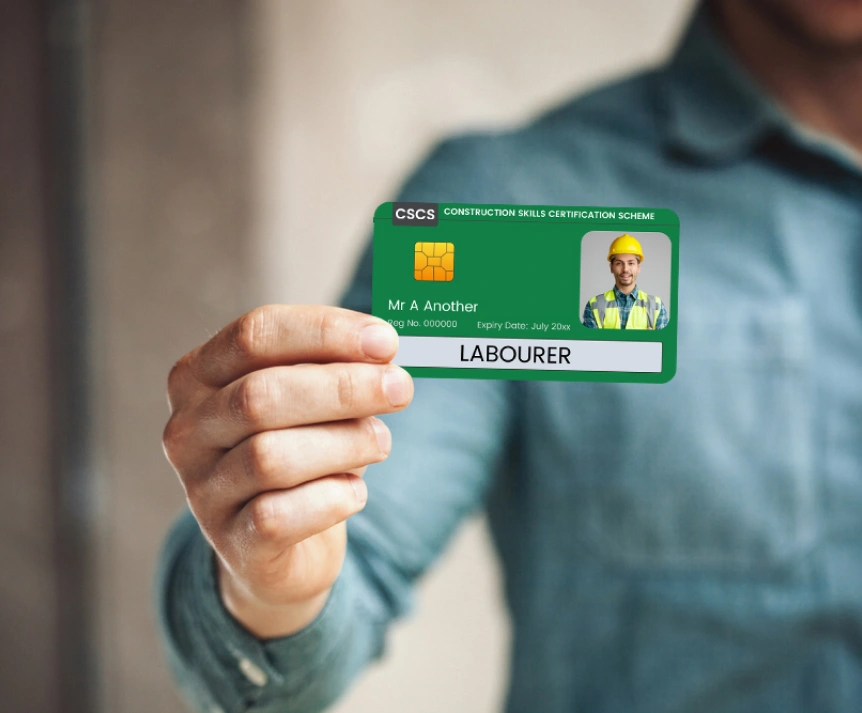If you’re aiming for a career in construction — you should get a CSCS card.
In this blog post, we’ll cover different funding options and the process you can follow to apply for CSCS Card funding.
Potential Funding Options — CITB, LEPs and B&CE Charitable Trust
Let’s take a closer look at potential funding options for you to get a CSCS card:
If You’re an Employee of a CITB Registered Employer
In this case, all you need to do is ask your employer if they are registered with the Construction Industry Training Board (CITB). Be sure to communicate your reasons for seeking a recognized qualification, and do so in a way that doesn’t raise concerns about you wanting to switch jobs. You can emphasize that you want to:
– Enhance your skill set.
– Obtain a recognized certification to remain relevant in the industry.
– Become a member of the CSCS-approved workforce.
– Familiarize yourself with the health and safety principles expected from you in your job role.
Please find the value you can claim in the table below:

Reaching out to Local Bodies – LEPs
Local Enterprise Partnerships (LEPs) are partnerships between local authorities and businesses aimed at promoting skill development. You can reach out to them to inquire about funding opportunities and secure a free CSCS card.
If You’re Unemployed
To qualify for funding under this category, you must have at least 12 months of experience as a tradesperson in the construction industry. And, if you’ve been unemployed for 3 months or more, you will be eligible for support from the B&CE charitable trust.
Final Verdict — How to Get a CSCS Card for Free?
Specify the Card
Use the CSCS Card Finder; simply add in the qualification you aim to pursue, and it’ll give you the card you’re eligible for.
If it’s the first time you are trying to use an online tool, don’t hesitate to follow this handy guide our team wrote specifically on using the CSCS Card Finder. You’ll find a step-by-step way to get your job done, that too with screenshots.
Find a Relevant Funding Programme
See, if you were to claim funding for the Blue Card and enrol on the Level 2 NVQ Diploma in Roofing Occupations (just an example)…
You need to first figure out how long it would take since it’d help you narrow down CITB fundings. You should reach out to the training provider to get a clear-cut answer for that. Let’s say they say the qualification will take you anywhere from 6-8 months. The next thing you should do is to match the duration against the table we provided up here.
Since it can be completed within a year, you’ll be eligible for short qualification funding from CITB.
Apply for the Grant
Download the application form, fill it, and send it to CITB.
This is just one way to do it.
If you’re enrolled on a longer qualification, you might have to reconsider your choices. To make it simpler for you, I’d recommend that you visit this page. You’ll find a list of available grant options. Figure out where you fit and go down that route accordingly.
What Would You otherwise Pay for a CSCS Card?
The primary factor that determines the cost is the qualification or the training programme you enrol yourself on. If you aim to become a skilled worker, pursuing a Level 2 NVQ course in your trade is the way to go. You can find a list of NVQs on Hurak and see which one goes with what you do.
For instance, If you want to become a labourer on a construction site, the training expenses would be around £100 – £200, and this does not include the cost of the CITB test, which is an additional £22.50 – once you have everything in place, you’ll need to pay an extra 36 pounds for the CSCS card application. So, in total, it would cost you approximately £200 – £250 to become a labourer on a construction site in the UK.
Wrapping Up
The objective of these non-departmental public bodies is to maintain safety standards and ensure that the workforce on construction sites is appropriately qualified for their respective roles. That’s why these qualifications are funded – to promote this safety culture.
If you found this information overwhelming or have any questions, feel free to connect with our team via LIVE Chat or call us at 0333 344 1293, and we’ll be happy to address your queries.




